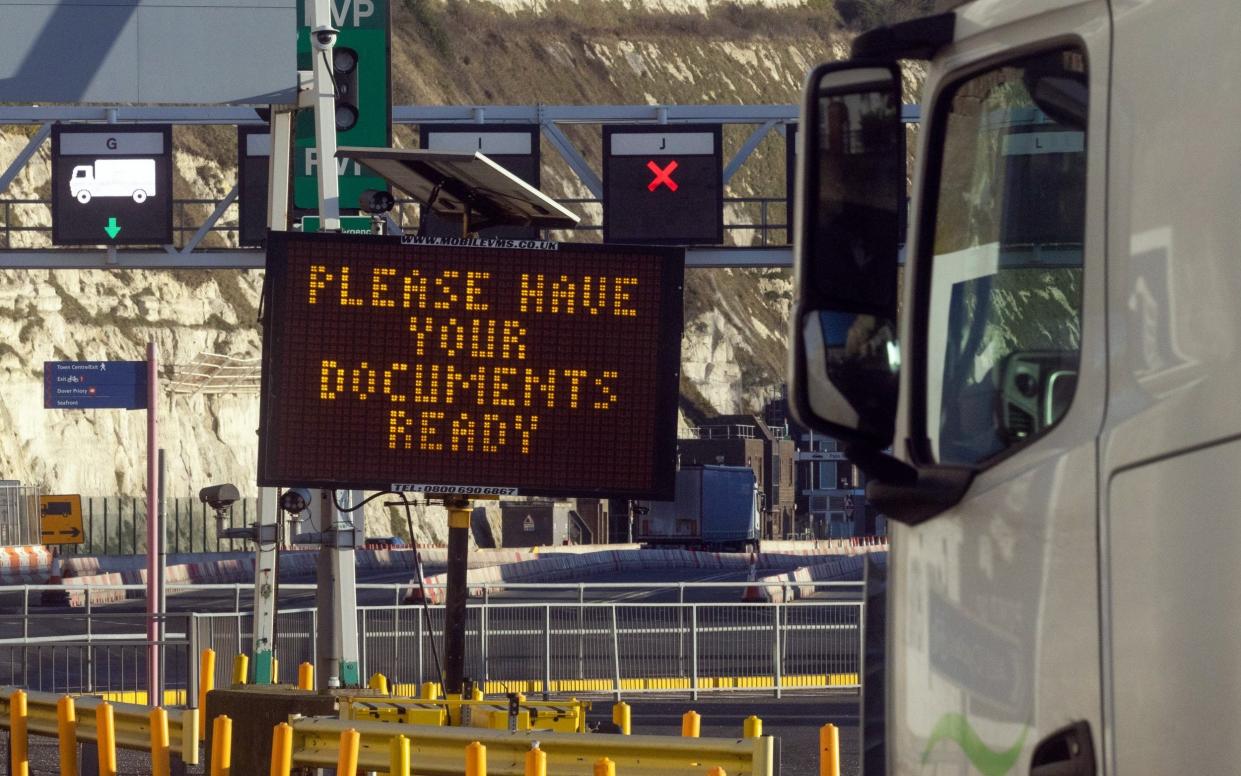UK trade and travel at risk of 'rapid' decline if Brussels refuses to soften looming border checks

Britain will suffer a "rapid and significant detrimental impact on trade and travel" with Europe if Brussels refuses to soften new border checks due to come in next year, the boss of the Port of Dover has warned.
Biometric controls are due to be introduced next May, replacing the “wet stamping” of passports, which was brought in after Britain left the EU.
But there are fears that the new identity checks - performed by French police in Dover - could take considerably longer than the current system. Experts have warned of 17-mile tailbacks as a result.
Britain has been pushing for the introduction of new technology that could help speed up the process but any system is dependent on Brussels agreeing a deal with Britain. There are concerns that the EU may be reluctant to sign-off on any deal before the May deadline.
Port of Dover chief executive Doug Bannister said: “If we are forced to commit to an inadequate process it will have a rapid and significant detriment on trade. That's why we're worried.”
Mr Bannister was unable to say how much longer new checks would add to the time taken to cross the border, which is a problem in itself. He is pushing the Government to pressure Brussels for greater clarity.
“Until we see the processes and technologies, we can't really appreciate what the impact will be. But the reason why it's a risk on our list is a risk because we're worried about it.”
“We’ve heard that it could be two-minutes per passenger plus two minutes per vehicle,” he said. “So that could be 10 minutes [additional time per vehicle].”
While the time may sound small, the level of traffic across this route means the added time quickly adds up to large cumulative delays. Some £144bn of freight flows through Dover, equivalent to a third of all the UK trade with the EU. The port carries the largest number of HGVs with 2.4 million lorries passing through it in 2019.
Mr Bannister also said the port was powerless to stop French officials not turning up to work, as they did at the start of the summer holidays causing huge delays for Britons heading across the English Channel.
Dover was hit by chaotic scenes at the start of the summer holidays after French border officials, which check passports on British soil, failed to turn up in sufficient numbers despite weeks and months of careful planning by port officials.
The French blamed the issues on Brexit and claimed its officials had been held up getting to work following delays passing through the Channel Tunnel.
Mr Bannister said that relations had thawed with French border officials, but he could not rule out a repeat of the chaos in the future. He has not sought an apology from Paris.
“Indeed they could [fail to turn up again],” he said. “Our philosophy right now is how do we work better [with them]. It’s unhelpful to poke the French.”

 Yahoo News
Yahoo News 
